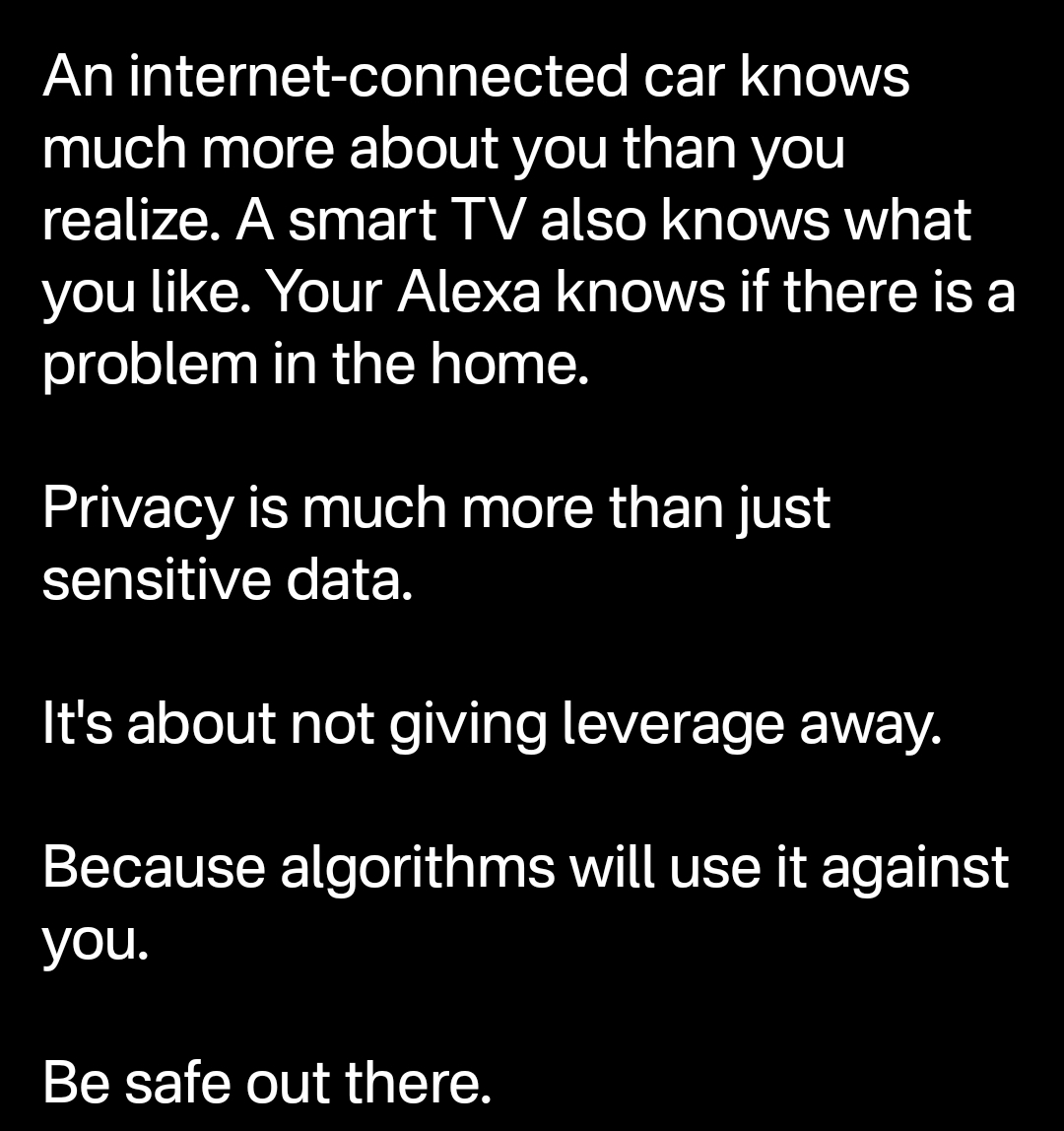
post text
Picture this:
- You type on Google “laptop won’t turn on”
- Google now knows you have a broken laptop and can estimate how desperate you are to fix it.
- Because it knows how desperate you are, it can increase shop prices proportionally.
You are going to pay the maximum they get you to pay.
That’s algorithmic pricing.
The more companies know about you, the more they can predict and sell how desperate you are to other stores out there.
An internet-connected car knows much more about you than you realize. A smart TV also knows what you like. Your Alexa knows if there is a problem in the home.
Privacy is much more than just sensitive data.
It’s about not giving leverage away.
Because algorithms will use it against you.
Be safe out there.

This is only a problem if the service provider is a monopoly (or if every service provider illegally coordinates price fixing).
I might be willing to pay up to $800 to fix a $1000 computer (a more expensive repair might cause me to look to buy a replacement rather than repairing). But if it’s a 1 hour job requiring $100 of parts, then all the computer repair shops would be competing with each other for my business, essentially setting their hourly rate for their labor. At that point it’s like bidding at auction up to a certain point, but expecting to still pay the lowest available price.
So the problem isn’t necessarily perfect pricing information from the other side, but lack of competition for pricing from the other side. We should be fighting to break up monopolies and punishing illegal price fixing.
You don’t need a monopoly for this to be a problem.
Databrokers can offer data sets of “customer price elasticity”. Tables of “how much we think X would spend on these generic item categories”. Eg “booly would pay $15 for a burger, vs $10 average”
Point of Sale systems could start offering integrations to these data sets.
All shops have to do now is set a list price, a minimum price, a category, and leave it up to the PoS to (not) give discounts.
You want a burger, you’re fed a single-use short lived discount “$5 off a $20 burger. Today only” While someone else gets “buy one get one free”.
It’s then a ‘fair’ market. Shops have and ‘compete’ with their (high) list prices, data brokers compete with “excess profit” statistics (ie, how much more money above the minimum price they made). Nobody is colluding, they’re just basing discounts off external arbitrary signals.
It slowly becomes the norm to get just-in-time discounts, and the consumer gets shafted. If you’re not in the system, you’re paying more than everyone else.
(And all of this has been happening in some markets for over a decade)